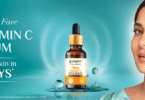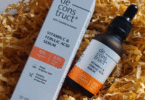We all want our skin to be clean, smooth, and flawless, but congested skin makes this difficult to achieve. This could be a problem for anyone with oily, acne-prone skin. Everyone, especially teenagers and preteens, is bothered about congested skin. Humidity, sweat, sebum, dead skin cells, and environmental aggressors can cause problems on our pores if left untreated, resulting in blockages and clogged skin. The appearance of congested skin has a rough texture, with many open and closed pores.
Treating and avoiding congested skin can be a time-consuming and exhausting process, and it may not work the same way on everyone’s skin. You can, however, rely on the below-mentioned methods to treat and prevent this skin condition. This article will explain to you what causes congested skin and how to prevent and treat it if you have it.
Keep on reading.
What is Congested Skin?
The term “congestion” refers to clogged pores on the skin. It appears as blackheads and whiteheads, causing bumps and a dirty look. When the pores of the skin become clogged, the skin becomes congested. If the skin is congested, you’re more likely to develop uneven skin, blackheads, whiteheads, acne, and open and wide pores.
When the sebaceous glands create too much sebum (“oil”), it causes congestion. Skin pores may overfill as a result, leading to closed comedones (also known as whiteheads) and open comedones or blackheads.
The simplest technique to determine if you have congested skin is by rubbing your hand on your face. If the texture of your skin is bumpy, uneven, and rough to the touch then it is congested. Blackheads and whiteheads are also possible, particularly on the T-zone and cheeks.
Also Read: Five Essential Quick-fix Winter Solutions
What Causes Congested Skin?
Hormonal changes, an unhealthy diet, inadequate skin care, the use of inappropriate skincare products, insufficient exfoliation, environmental pollution, Excess oil and sebum build-up, dead skin cells, dehydration. Congested skin can also be caused by applying too much makeup, if you use make-up on a regular basis, not cleaning your makeup tools might cause skin infections and congestion, over-exfoliation, and other factors that can all contribute to this skin problem.
How to Treat Congested Skin?
Cleaning and exfoliating extensively is the best technique to treat congested skin. But be careful not to overdo it. A complete cleansing practice is essential, including double cleansing in the evening and avoiding soap-based solutions. Exfoliating the skin too much can aggravate the problem. Alpha hydroxy acids including salicylic acid, glycolic acid, mandelic acid, malic acid, and lactic acid gently exfoliate the skin without drying it out or harming it.
Make sure the product you’re using is correct for your skin type. Using the wrong skincare products can be quite hazardous to your skin. To unclog pores and balance out your skin tone, get regular treatments like chemical peels, enzyme peels, or a HydraFacial. The HydraFacial, for instance, is undoubtedly the greatest facial for open pores and blackheads, as well as having anti-aging properties.
Symptoms of Congested Skin
The severity of congested skin varies from person to person. Some people detect it in the center of their forehead, nose, inner cheek area, and chin, while others notice it in their chest, butt, and other areas. Below is the list of symptoms that the congested skin may include:
- Whiteheads
- Blackheads
- Clogged pores
- Redness
- Rough and bumpy skin
- Dull-looking skin
How to Prevent Congested Skin?
- There are several precautions you should take to prevent or lessen congested skin. Remember to clean your make-up brushes and remove your make-up before going to bed. Silicone and paraben-containing items should be avoided. Make sure you use a mild, water-based moisturizer on a daily basis.
- Bacteria can be transferred from your hands to your face skin when you contact it frequently. To minimize further skin congestion, keep your face mask and mobile phone clean.
- Bacteria and grime can easily taint beauty items. Never give or borrow your tools from anybody else, including friends and family. After each usage, make sure to clean your tools.
- Never succumb to the lure of untested, questionable skincare products. Unfortunately, many products on the market fraudulently offer answers to clogged and congested skin that are, at best, a waste of money and, at worst, a health concern. If you have clogged skin, use a clinically proven product.
- Maintaining a healthy lifestyle by eating, sleeping, and exercising properly is the age-old beauty key to gorgeous skin. To prevent clogged pores, eat foods such as nuts, seafood, eggs, and seeds in moderation.
- Sweating helps to eliminate toxins from the body. While having a solid eight hours of beauty sleep is essential for beautiful skin.
- Keeping your skin clean by washing it twice a day can help. Soap-based face washes should be avoided at all costs because they might dehydrate your skin.
- Although nourishing lotions and oils are essential for feeding our skin, using too many of them can lead to comedones or clogged pores. If your skin gets oily, avoid ingredients like cocoa butter, and look for pore-clogging cosmetics if your skin is prone to congestion.
- Make sure to take vitamins, as Vitamin A and B are essential elements for fighting congestion. Vitamin A minimizes sebum levels, while Vitamin B aids in oil control, barrier repair, and hydration.
- Avoid touching the face excessively during the day, since this can contribute to the buildup of dirt, oil, and pollutants on your face. Last but not the least, To avoid congested skin, make it a habit to exercise on a regular basis. Sweating is a byproduct of exercise, and it can assist in cleansing your skin from the inside out.
Takeaway
Congestion occurs when sebum, dead skin cells, and other impurities block your pores. While it poses no serious risk, it can be extremely ugly. The good news is that there are a variety of options for treating and preventing clogged pores that are discussed above. If you stick to a good skincare routine, you can experience great results. Also, limit your intake of refined sugar and avoid processed foods if feasible.
If these issues are making you self-conscious to the point where they’re interfering with your everyday activities, or if you have tried all the above precautions and treatment but still have problems, it’s time to consult a doctor. They will suggest the products, give you the advice and treat you according to your skin type.




